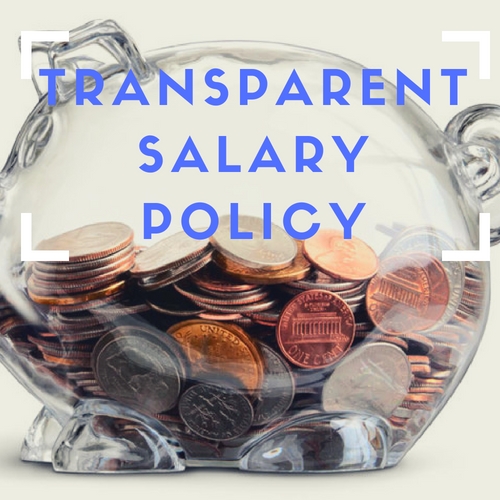More than half of the 2,000 companies surveyed in the US by the consulting firm, Willis Towers Watson, plan to increase transparency around pay decisions in the next year. Verve, a marketing company, has already listed employees’ salary on an internal document for everyone to see. By 2019, all 1,100 employees at CareHere, a Nashville-based healthcare company, will know the pay ranges for all positions in the company. Another New York-based software company, Fog Creek, ensured the same last year. Employers have long avoided discussing money at work, partly because concealing salary information keeps compensation costs down. But the examples above clearly show that the attitude is starting to change. Can India be transparent when it comes to disclosure of salaries?
Geethaa Ghaneckar, CHRO, Raheja Universal
If the compensation has followed a scientific pattern over the years, then it can eventually lead to a fair marketplace. However, it could be detrimental and dangerous for companies which do not have mature compensation practices.

It’s a good practice to make the compensations public. The compensation is an ‘openly guarded secret’ because employees know about it, yet it’s expected to be guarded. Compensations are the outcomes of employees’ career trajectories and the value they have added to themselves along the journey. If these are made visible, they can act aspirational for those who are competent but may act as deterrent for others who are only competitive and not competent and that will even out over a period of time.
For instance, if employees are aware that their peers have joined from outside with 20 per cent more salary, they may crib, but the fact remains that the other person has learnt along the journey, moved across companies, worked through difficult environments, and therefore, brings more perspective and knowledge to the job that the other person is doing. The fairness of the whole process becomes evident. However, it is not easy to make it transparent unless the core compensation practices, based on equality and impartiality, are fed in the system.
Organisations, which have been able to maintain strictness around this could probably think about it, but traditional organisations attach values to their employees in a different way. For instance, loyalty is not a trait that is easy to explain, making it rather difficult. If the compensation has followed a scientific pattern over the years, then it can eventually lead to a fair marketplace. However, it could be detrimental and dangerous for companies which do not have mature compensation practices.
Srikanth Karra, CHRO, Mphasis
It is also not easy to quantify the role of employees and no manager likes to discuss peer performance with an employee or try to justify it. This will be demoralising for employees, as each person in the same role may have different salaries based on their experience, skills and other things.

It’s a disclosure of closely guarded private information to the public, but for executive leadership it’s statutory to disclose their salaries both in the US and India. The difference in salaries is interpreted differently, as performance is subjective. If an employee doesn’t perform well in the job and the salary is made public then it will offend that employee, who will not want his performance to be known among peers.
It is also not easy to quantify the role of employees and no manager likes to discuss peer performance with an employee or try to justify it. This will be demoralising for employees, as each person in the same role may have different salaries based on their experience, skills and other things. It will lead to confrontations and make things controversial by creating troubles for managers. There are other risks of disclosure of personal compensation, as the financial information is linked to an employees’ personal wealth, loans, debtors, creditors, credit ratings and much more.
Emmanuel David, director, Tata Management Training Centre (TMTC), Tata Group HR
Revealing pay information, on the other hand, may actually increase performance, especially among the top performers, which can be a counter-intuitive thought. To create a fair ecosystem is not easy, but not impossible either.

The adage, ‘Never ask a woman her age and a man his salary’, is still relevant in India. It is considered to be awkward and embarrassing to ask someone’s salary. Discussion of salaries with co-workers has long been considered impolite and the general norm is to keep salaries a secret.
However, when the employees relocate to other geographies, their salary level is known to others largely due to their lifestyle. It has been seen that some companies in India and abroad are mature enough to openly display the worth of a particular job through transparency in the wages given to the employees. For instance, employees who are more productive might get a promotion but their salaries may remain lower than those who are average performers but have been part of the system for a longer duration.
Keeping pay a secret may act as a dampener for individual performance. Revealing pay information, on the other hand, may actually increase performance, especially among the top performers, which can be a counter-intuitive thought. To create a fair ecosystem is not easy, but not impossible either. We need to have an ecosystem in place to be transparent. It will help in structuring the wage bill and look for a value of the job. Each position has certain responsibilities, and if certain employees are demanding a pay hike then we can clearly ask them about their capabilities to handle their respective profiles. Employees can be compensated for performance monetarily or non-monetarily. Such a correction will bring transparency, stability and clarity for both parties.
It is always better to be transparent in the organisation and also be upfront about employees’ compensation and performance to avoid any grapevine. Secrecy at some level is also about fairness, but fairness is not kindness.
Value our content... contribute towards our growth. Even a small contribution a month would be of great help for us.
Since eight years, we have been serving the industry through daily news and stories. Our content is free for all and we plan to keep it that way.
Support HRKatha. Pay Here (All it takes is a minute)




































